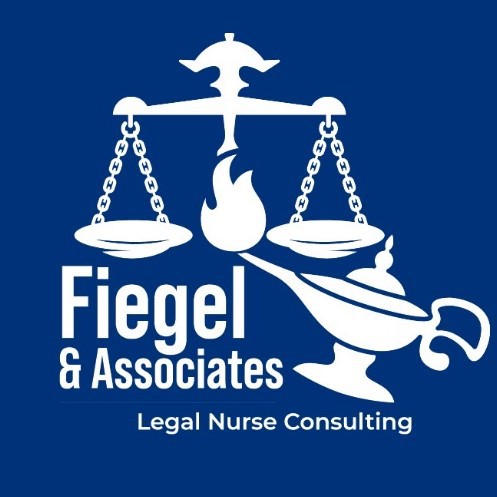When a person suffers an injury due to an accident or someone else’s negligence, the path to recovery is often long and complicated. One of the biggest challenges is managing the financial impact, particularly the medical expenses that come with treatment, hospitalization, and rehabilitation. A Personal Injury Lawyer (PIL) plays a crucial role in helping clients navigate this financial burden. Understanding how these bills are paid can be a game-changer for anyone in this situation.
The Basics of Personal Injury Law and Medical Bills
Personal injury law is designed to help people who have been hurt due to the negligence or wrongful actions of others. These injuries can range from car accidents and slip-and-fall incidents to medical malpractice and defective product cases. One of the key elements of a personal injury claim is seeking compensation for damages, which typically include pain and suffering, lost wages, property damage, and medical expenses.
Medical bills can pile up quickly after an accident, and in many cases, injured clients are unable to pay them upfront, especially if they are unable to work due to their injuries. This is where personal injury lawyers come into play. Personal injury attorneys help clients navigate their claims and negotiate settlements that can cover medical bills and other expenses incurred due to the injury. Check out this excellent article posted on San Antonio lawyer J. R. Trevino’s website: https://trevinolaw.com/how-much-can-lawyers-reduce-medical-bills/ discussing how PIL’s can help negotiate medical bills.
Contingency Fees: No Upfront Costs for Clients
Most personal injury lawyers work on a contingency fee basis. This means that the lawyer does not get paid unless the client wins their case or reaches a settlement. The lawyer typically takes a percentage of the settlement (usually between 25% and 40%) as their fee. This arrangement is beneficial for the client, as it eliminates the need for upfront legal fees.
Since many injury victims are financially strained after an accident, contingency fees ensure they can still afford legal representation. However, it’s important to note that even though there’s no upfront cost for the lawyer’s services, clients will eventually need to pay their medical bills, either directly or through the settlement. This is where the complexity of how the medical bills are handled begins.
Medical Liens: The Role of Healthcare Providers
In the aftermath of an accident, clients may be treated by various healthcare providers, including hospitals, doctors, physical therapists, and specialists. While these providers typically expect payment for their services, clients often don’t have the means to pay these bills upfront. In these cases, healthcare providers may agree to treat the injured person on credit, meaning they provide medical services with the understanding that the client will pay once a settlement or judgment is obtained.
To ensure that they are paid from any future compensation, medical providers may place a medical lien on the client’s settlement. A medical lien is a legal claim against the personal injury settlement that ensures the healthcare provider is paid for their services before the injured party receives any remaining funds. The lien is a way for healthcare providers to ensure that they are reimbursed for the costs of treatment, regardless of the outcome of the case.
Personal injury lawyers are experienced in negotiating these liens, working to reduce the amount that needs to be paid back. In some cases, they may be able to negotiate with the healthcare providers or insurance companies to lower the lien amount, ensuring that the client gets to keep a more substantial portion of the settlement.
“Often times the attorney can provide a ‘letter of protection’ to the medical provider and pay them out of the settlement. Other times the medical provider can put a lien against the settlement and get paid directly.” https://divorcelawyersa.com/helotes-personal-injury-lawyer/
Health Insurance and Personal Injury Claims
Another layer of complexity is the role of health insurance in paying medical bills. Many people involved in personal injury cases already have health insurance that covers medical expenses. However, health insurance providers typically require reimbursement if the client receives a settlement or judgment for their injuries. This reimbursement is called subrogation.
If a client has private health insurance, the insurer may pay for the medical treatments initially but will expect to be reimbursed from any recovery the client obtains in a personal injury case. Personal injury lawyers will carefully handle this process to make sure that the reimbursement to the insurer is fair and does not eat into the client’s compensation unnecessarily. They will negotiate with the insurance company to settle the subrogation claim, minimizing the amount the insurance provider is entitled to and maximizing what the client receives.
Additionally, if the client’s treatment was covered by Medicaid or Medicare, the government program may also claim reimbursement. This can add another layer of negotiation that the lawyer must manage to ensure that medical bills are paid without the client losing out on their rightful compensation.
The Importance of Medical Records and Documentation
An essential part of any personal injury case is the proper documentation of injuries, treatments, and medical expenses. This is the wheelhouse of a Certified Legal Nurse Consultant (CLNC). Personal injury lawyers will work closely with medical professionals like Fiegel & Associates Legal Nurse Consulting (www.legalfiegel.com) to ensure that the necessary records are collected, reviewed, analyzed and organized. This documentation serves as critical evidence to support the client’s claim for compensation, and it is also important for managing medical bills. For example, in situations where the client’s insurance company or a medical provider is seeking reimbursement, a detailed record of all medical treatments, bills, and payments is essential. This record helps the lawyer determine the amount that should be paid to medical providers and how to negotiate any liens or subrogation claims.
Conclusion
Personal injury lawyers play a vital role in helping clients deal with the financial strain caused by medical bills after an injury. Through strategic negotiations, legal expertise, and careful management of liens, insurance, and settlements, they ensure that clients can focus on their recovery while their financial interests are protected. Whether it’s negotiating medical liens, dealing with health insurance reimbursement, or managing the intricacies of structured settlements, a personal injury lawyer helps clients navigate the complex world of medical bills, ensuring that they don’t face unnecessary financial hardships due to an injury that was not their fault.
If you’ve been injured in an accident, it’s important to consult a personal injury lawyer to understand your rights and the best way to handle your medical bills. By working with an experienced lawyer, you can secure the compensation you deserve while ensuring that your medical expenses are appropriately managed.

